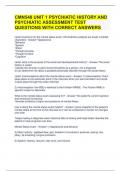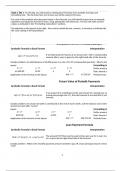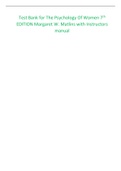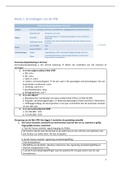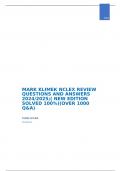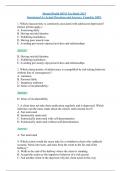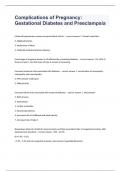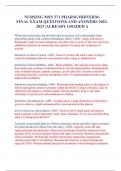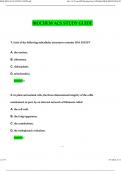Exam (elaborations)
CMN548 UNIT 1 PSYCHIATIC HISTORY AND PSYCHIATIC ASSESSMENT TEST QUESTIONS WITH CORRECT ANSWERS
- Course
- Institution
CMN548 UNIT 1 PSYCHIATIC HISTORY AND PSYCHIATIC ASSESSMENT TEST QUESTIONS WITH CORRECT ANSWERS carlat mnemonic for the mental status exam: All borderline subjects are tough, troubled characters - Answer-*Appearance *Behavior *Speech *Affect *Thought process *Thought content *Cognitive ...
[Show more]
